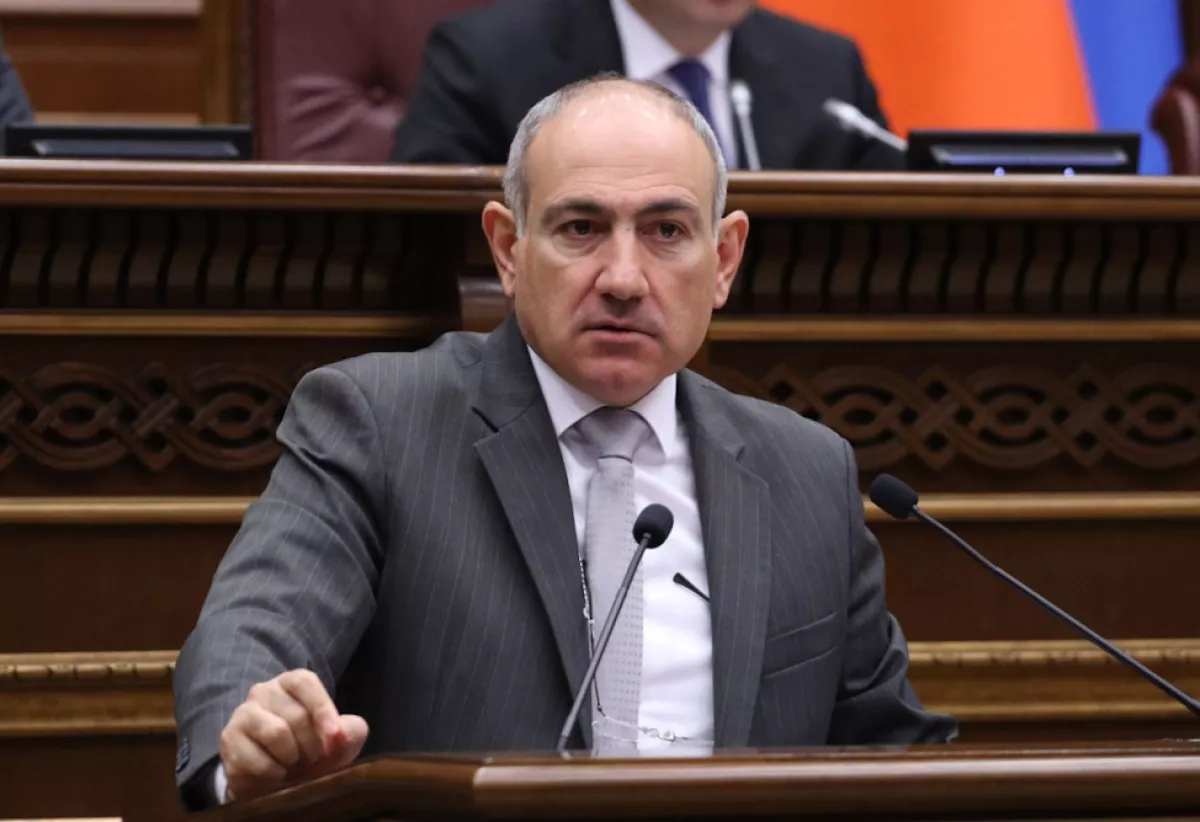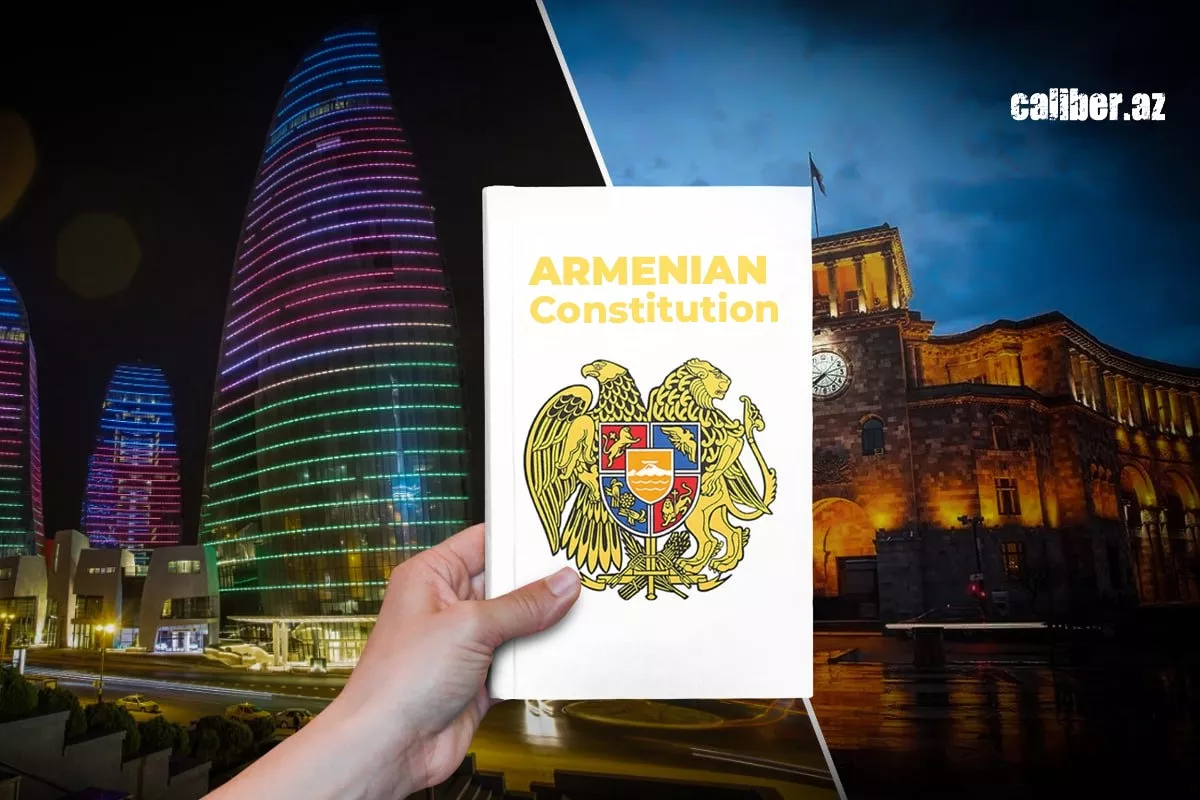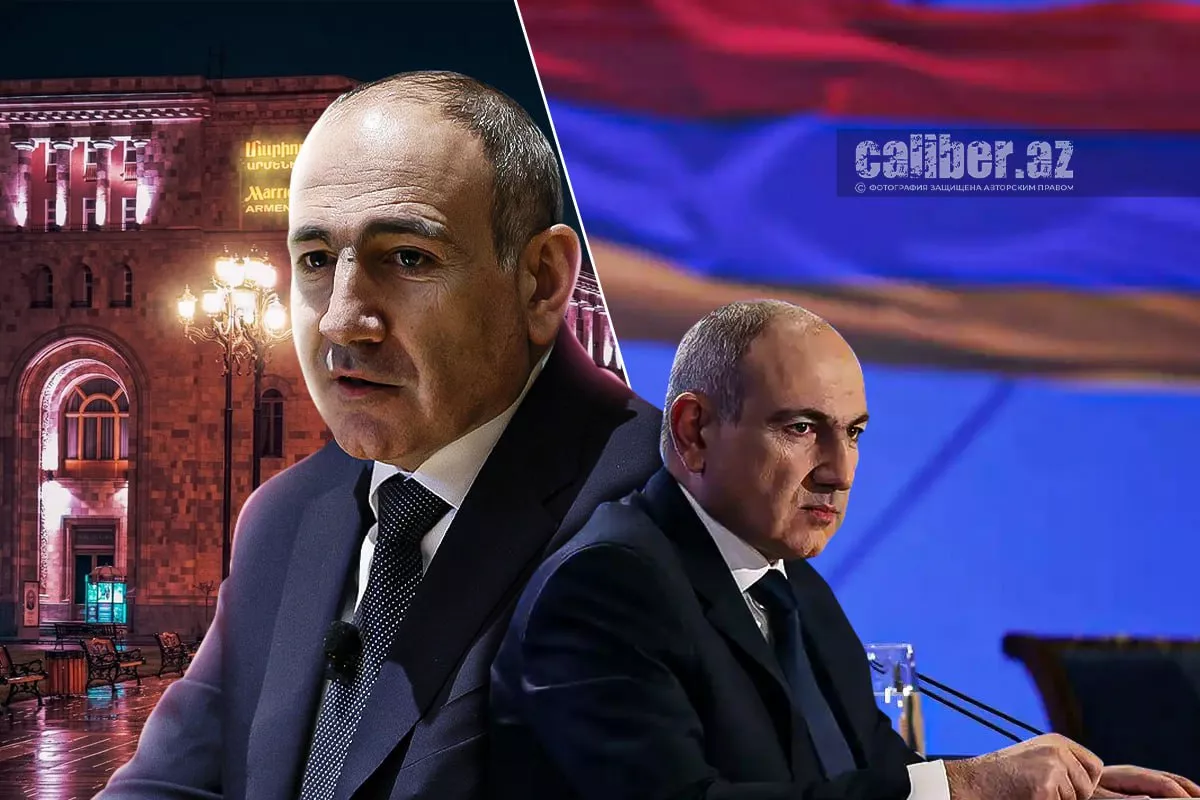Armenian leader's contradictory statements A step toward peace or political posturing?
Armenian Prime Minister Nikol Pashinyan made two conflicting statements within 24 hours regarding a peace agreement with Azerbaijan.
On April 15, during a session in the National Assembly of Armenia, he stated that Armenia is ready to sign a peace agreement with Azerbaijan while simultaneously dissolving the OSCE Minsk Group.
"If we are closing the page on the Nagorno-Karabakh conflict, and we are doing so, then what is the point of having a structure that deals with the conflict? However, the OSCE Minsk Group, at least de facto, has a broader context, and we want to ensure that Azerbaijan does not view the dissolution of the Minsk Group as a step towards closing the Armenian-Azerbaijani conflict on Azerbaijani territory and transferring it to the sovereign territory of the Republic of Armenia. To dispel this concern, we propose that Azerbaijan simultaneously sign the peace agreement and jointly appeal to the OSCE to dissolve the structures of the Minsk Group. In other words, at the same place and at the same time, we will sign both documents. This is an official proposal," said Nikol Pashinyan.

At the same time, he rejected Baku's demand to amend the Constitution of Armenia, referring to a ruling by the country's Constitutional Court, which allegedly states that the Constitution of Armenia does not contain territorial claims against Azerbaijan.
However, just today, Armenian media reported new statements by Pashinyan, according to which the new Constitution of Armenia should not include a reference to the Declaration of Independence, which contains territorial claims against Azerbaijan.
"I can say that, in my opinion, the text of the new constitution should not reference the Declaration of Independence. But the decision should be made by the people of Armenia. Of course, both the arguments ‘for’ and ‘against’ should be presented by political forces and their leaders. This is my political position," Pashinyan told journalists.
Notably, the preamble of the current Constitution of Armenia includes a reference to the Declaration of Independence, adopted on August 23, 1990, which mentions the "reunification of the Armenian SSR and Nagorno-Karabakh."

In January 2024, Pashinyan stated that Armenia needs a new constitution that "ensures the country's viability in new geopolitical conditions." Later, he clarified that the provisions of the Declaration of Independence, which form the basis of the current Constitution, pose a threat to Armenia by leading it towards war.
Pashinyan then announced that the authorities plan to hold a referendum on adopting a new constitution in 2027.
He also mentioned that his team is considering the possibility of holding the referendum simultaneously with the parliamentary elections in 2026. At that time, he argued that constitutional changes are purely an internal political issue and will not have regional or international implications.
Official Baku has repeatedly stated that for a peace agreement to be signed, Armenia must amend its constitution, as it contains direct territorial claims against Azerbaijan.
Another demand from Azerbaijan is the dissolution of the OSCE Minsk Group, established in the 1990s to resolve the Nagorno-Karabakh conflict, but which has discredited itself through destructive activities and a one-sided approach, solely focused on Armenia's interests.
If implemented, Pashinyan's new statements would not only meet Azerbaijan's demands but also serve the interests of the entire region, bringing the long-awaited peace between Baku and Yerevan closer.
At the same time, Pashinyan is fully aware that his actions could have serious consequences for his grip on power in the country. It is no coincidence that he stated that this issue should be decided by the Armenian people. Clearly, the prime minister is counting on popular support regarding the adoption of a new constitution, which is expected to exclude territorial claims against Azerbaijan.

At the same time, he is attempting to shift the responsibility for signing a peace agreement onto the people, which seems like a calculated political move.
The same logic underlies his social media post published recently: "The draft Agreement on the Establishment of Peace and Interstate Relations between Armenia and Azerbaijan has been agreed upon, and negotiations on the agreement on the draft have been completed. This means that we have entered the stage of discussions on the signing of the agreement, and I have declared that I am ready to put my signature on behalf of the people of Armenia to the agreement," Pashinyan wrote on his social media page, assuring that despite all the challenges, he and his government would not retreat from the peace agenda.
The prime minister also emphasised the following: "Some forces both in Armenia and outside Armenia are carrying out daily propaganda for war and are taking specific actions aimed at bringing it to life," he noted.

This rhetoric aligns with his recent statement that the "Karabakh movement" in Armenia will not continue.
However, there is no doubt that Pashinyan's rhetoric is aimed at convincing the international community that Armenia's actions are purely peaceful and aimed at stabilising the region. This is further confirmed by his strange call to Baku for the creation of a daily investigation mechanism along the border.
"There are two options there: either indiscipline or deliberate actions aimed at terrorising the civilian population. In both cases, Azerbaijan should investigate and take measures to stop them. But so as not to sound one-sided, I say, we are ready, let's investigate. Why does Azerbaijan refuse?" Pashinyan stated during a session of the National Assembly.
Clearly, such baseless statements are nothing more than a public relations tactic. The Armenian prime minister is attempting to place the blame for border incidents on Azerbaijan, which appears absurd.
Therefore, Baku has valid reasons not to trust Pashinyan's contradictory statements. Words have been spoken, but no concrete actions have been taken yet.
If Armenia's leadership is truly committed to peace and ready to confirm this through real actions, Baku would welcome such an initiative and is open to constructive dialogue.
However, as long as words are not backed by actions, everything Pashinyan says remains nothing more than a political smokescreen.








